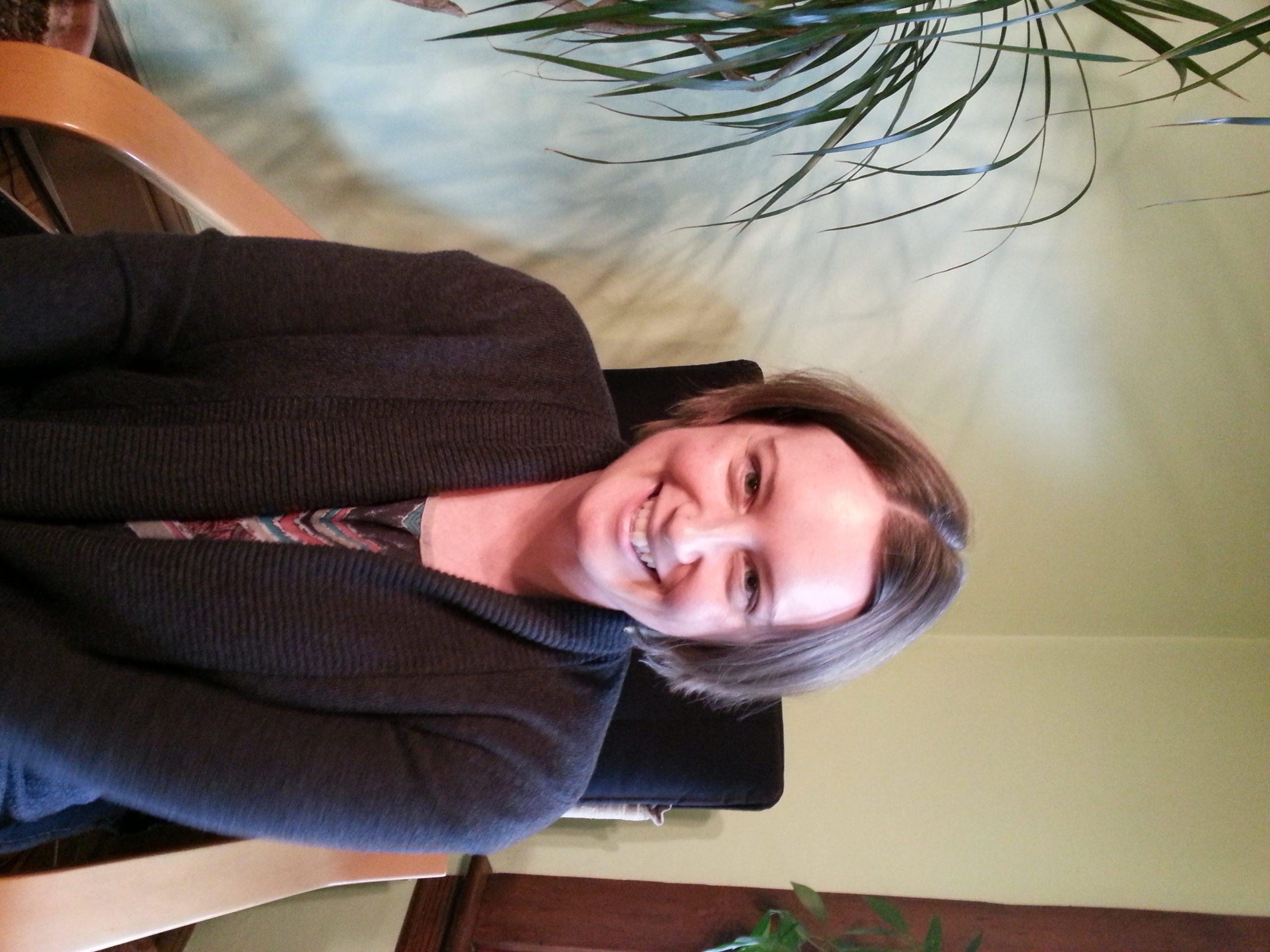 Carmen Horst lives in Lancaster, Pennsylvania, where she is associate pastor at James Street Mennonite Church, a place and people she loves. Among her favorite things about pastoring are: visiting with people in their homes, preaching and interacting with the amazing children at JSMC. The least liked part of pastoring is trying to answer emails on time. Before becoming a pastor, Carmen worked with Mennonite Central Committee in El Salvador. This is the first in a series of posts featuring reflections from participants in the recent Women Doing Theology conference, I’ve got the power!
Carmen Horst lives in Lancaster, Pennsylvania, where she is associate pastor at James Street Mennonite Church, a place and people she loves. Among her favorite things about pastoring are: visiting with people in their homes, preaching and interacting with the amazing children at JSMC. The least liked part of pastoring is trying to answer emails on time. Before becoming a pastor, Carmen worked with Mennonite Central Committee in El Salvador. This is the first in a series of posts featuring reflections from participants in the recent Women Doing Theology conference, I’ve got the power!
A powerful moment of the Women Doing Theology gathering was breathing together in worship. One hundred fifty women worshiping our Creator, supported by the breath of the Holy Spirit, making that Breath among ourselves. The worship leaders read Acts 2 in layers of voices. “When the day of Pentecost arrived, they were all gathered in one place. Suddenly a sound from heaven like the howling of a fierce wind …” and all the women created. We created sound by rubbing our hands together. We lifted our hands to God. We used our whole bodies to breathe strong breaths into the spaces around us.
“They were all filled with the Holy Spirit and began to speak … ” I know the Acts 2 Scripture goes on to speak of languages. But, in a roomful of women who came from differing perspectives, regions and backgrounds, it was the precise moment of finding voice and beginning to speak that gained emphasis for me.
God’s Empowering Spirit gives voice to real-live human beings including all our differing perspectives, regions and backgrounds. “They were all …,” every person, filled and empowered to speak.
As a white, highly educated woman with relatively high positional power as an associate pastor, even I have struggled with power. I want more of it (who doesn’t?). Yet I am simultaneously afraid of my power and its potential for harm. I am learning that there are parts of the power I have that come from messy places (whiteness and religious institutional power, for a start). Many times my response to learning these things is to keep silent.
But, this past summer I did not keep silent when my conference leaders wanted to discipline me for participating in a wedding for a gay couple from my church. And I have paid a (small-ish, comparatively) price for that — in parts of my church, part of my family and within my own spirit. Let me tell you, beginning to speak out does not feel good. In a complicated twist, I was struggling against my own self: the institutions that give me some power are the same groups that provide a strong disincentive for giving voice to anything that will disrupt that power.
By beginning to speak, I loosed some of the ties to the power that I still (honestly) wanted to have.
Acts 2 goes on with Peter telling us that the Holy Spirit’s pouring out was disruptive. It looked out-of-place, like early morning drunkenness! The prophecy from Joel speaks of wonders, blood, fire and a darkening sun — all rather unsettling and loose and scary to me. I actually support institutions. I think they have an important role to organize chaos that we humans often generate. But, the same institutions that humans construct out of necessity gradually choke us. The Holy Spirit has got to break in and disrupt even what once seemed good to re-baptize it, pouring out on all people. New dreams, new voices, new creations, new breath.
I heard a sound like that happening at Women Doing Theology. It was heavenly.

